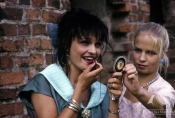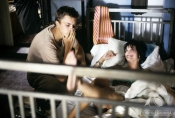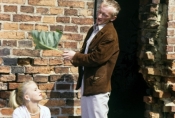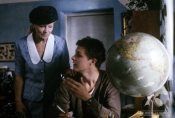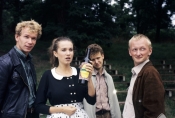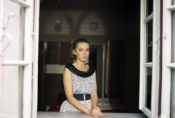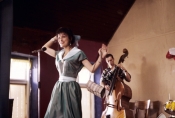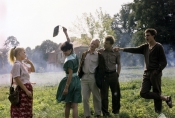BY THE RIVER NOWHERE [1991]
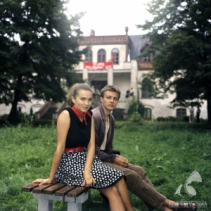
year:
- 1991
release date:
- 23 I 1991
runtime:
- 85 min
directed by:
- Andrzej Barański
written by:
- Andrzej Barański based on a novel by Stanisław Czycz
director of photography:
- Ryszard Lenczewski
cast:
- Marek Bukowski [Admiral], Joanna Trzepiecińska [Marta], Adrianna Biedrzyńska [Ewa], Mirosław Baka [Chief], Tomasz Hudziec [Ataman], Andrzej Mastalerz [Pasha], Marta Kalmus [Monika], Iwona Marciniec [Sylwia], Barbara Połomska [Admiral’s mother], Magdalena Scholl [Mouse], Małgorzata Wachecka [Bożena], Jerzy Braszka [Ziutek], Krystyna Feldman [Magotka], Marta Konarska [Jola], Edward Kusztal [a fireman], Stanisław Mucha [Czesiek], Paweł Nowisz [feltcher]
edited by:
- Zbigniew Niciński
music by:
- Henryk Kuźniak
production design:
- Paweł Mirowski
produced by:
- Telewizja Polska, Studio Filmowe „Oko”
executive producer:
- Paweł Rakowski
awards:
-
• Polish Feature Film Festival Gdynia 1991: best screenplay award for Andrzej Barański, Award of the Chairman of the Radio and Television Committee for Andrzej Barański
• Tarnów Film Award 1993: Grand Prix Bronze Leliwita Statuette, Youth Jury Award
About the film
A provincial town. Early 1960s. Young boys: Admiral, Ataman, Chief and Pasha, spend their free time wandering the streets. They drink cheap wine and hang out at the train station. They dream of a beautiful life, full of adventures.
One day Marta, a girl from the student camp, comes to the town. Feelings develop between her and Admiral. The boy neglects his colleagues and spends all his time with Marta. Young love makes both of them irritable. This leads to a break-up. When two new girls who have run away from home arrive in town, Ewa and Mouse, Admiral tries to take advantage of the opportunity to make Marta jealous, and ostentatiously courts Mouse − to no avail. The boys laugh at him, resulting in a duel between Chief and Admiral. The hostility quickly passes, and reconciliation is sealed with wine in a café and a brawl, after which, the entire gang goes to jail. The summer ends. Marta leaves, hesitantly, as if searching for someone on the train platform... At night, the boys go to the river, which seems to them a wonderful thing in their dreams. In the morning, they see the ordinary little river of their childhood.
This is my sentimental journey to a time, place and people − to myself. Gone is the small town in which I lived, gone is my youth. (Andrzej Barański)
Waldemar Piątek, Leksykon polskich filmów fabularnych, Warszawa 1996
